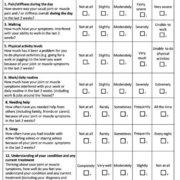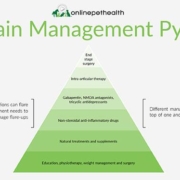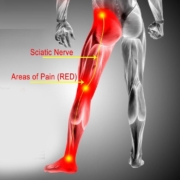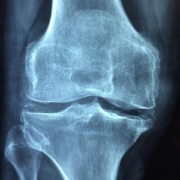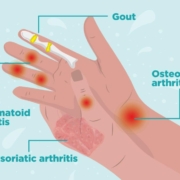Living with Chronic Pain: Finding Strength and Resilience
Chronic pain, especially related to musculoskeletal (MSK) issues, can significantly impact your life. It can make everyday activities challenging and affect your overall well-being. Understanding how to manage and cope with chronic pain is crucial for maintaining a good quality of life. This article provides insights and strategies to help you navigate the challenges of chronic pain and build strength and resilience.
Why is Managing Chronic Pain Vital for MSK Health?
Chronic pain can be a symptom of underlying MSK conditions like arthritis, back pain, or fibromyalgia. Effectively managing pain helps prevent further deterioration of these conditions. It also allows you to stay active, which is essential for maintaining MSK health and preventing other health problems.
Understanding Your Pain:
Types of Pain: Pain can be acute (short-term) or chronic (long-term, lasting more than three months). MSK pain often originates from bones, joints, muscles, tendons, or ligaments.
Pain Signals: Your nervous system sends pain signals to your brain to alert you to potential harm. Sometimes, these signals can persist even after the initial injury has healed, leading to chronic pain.
Individual experiences: Everyone experiences pain differently. What might be mild pain for one person could be severe for another. It’s important to listen to your body and communicate your pain levels to your healthcare provider.
Strategies for Managing Chronic Pain:
1. Medical Treatments:
Consult a Healthcare Professional: A doctor can diagnose the cause of your pain and recommend appropriate treatments.
Medications: Pain relievers, anti-inflammatory drugs, and other medications can help manage pain.
Physical Therapy: A physical therapist can teach you exercises to strengthen muscles, improve flexibility, and reduce pain.
Injections: In certain specific cases,injections like corticosteroids can definitely help reduce inflammation and pain.
Surgery: Surgery may be an option for certain MSK conditions causing chronic pain.
2.Lifestyle Modifications:
Exercise Regularly: Low-impact exercises like walking, swimming, or cycling can definitely help improve MSK health and reduce pain. Start slowly and gradually increase the intensity and duration.
Maintain a healthy Weight: Excess weight puts extra stress on your joints, which can worsen pain.
Improve Sleep Quality: Getting enough sleep is crucial for pain management and overall health. Establish a regular sleep schedule and create a relaxing bedtime routine.
Eat a Balanced Diet: A nutritious diet rich in fruits, vegetables, and whole grains can help reduce inflammation and support overall health.
3. Mind-Body techniques:
Stress Management: Stress can worsen pain.Practice relaxation techniques like deep breathing, meditation, or yoga.
Cognitive Behavioral therapy (CBT): CBT can help you change negative thought patterns and develop coping strategies for managing pain.
Mindfulness: Paying attention to the present moment can help you manage pain and reduce stress.
Support Groups: Connecting with others who experience chronic pain can provide emotional support and practical advice.
4. Pacing Yourself:
Activity Pacing: Break down tasks into smaller, manageable chunks and take breaks throughout the day.
Prioritize Activities: Focus on activities that are important to you and delegate or postpone less essential tasks.
Energy Conservation: Learn to conserve your energy by using assistive devices, simplifying tasks, and avoiding overexertion.
Building Resilience:
Living with chronic pain can be challenging, but it doesn’t have to define you. Building resilience can definitely help you cope with the emotional and physical challenges of chronic pain.
Focus on Your Strengths: Identify your strengths and use them to cope with challenges.
Set Realistic Goals: Set small, achievable goals to build confidence and maintain motivation.
Practice Self-Care: Make time for activities that you enjoy and that help you relax and recharge.
Seek Support: Don’t hesitate to reach out to family, friends, or a therapist for support.
Summary:
Managing chronic pain requires a multifaceted approach that addresses both the physical and emotional aspects of the condition. By combining medical treatments, lifestyle modifications, mind-body techniques, and pacing strategies, you can effectively manage your pain and improve your quality of life. Remember to be patient with yourself, celebrate small victories, and seek support when needed. Building resilience is key to navigating the challenges of chronic pain and living a fulfilling life.
Additional Resources:
The American Chronic Pain Association (ACPA): www.theacpa.org
National Institute of Arthritis and Musculoskeletal and Skin Diseases (NIAMS): www.niams.nih.gov
Pain Management Resources: [Search online for “pain management resources” in your area.]



